Which secondary school has produced the highest number of players for the Green/Super Eagles in Nigeria’s history?
This is a Million-Dollar poser that I have been trying to solve it in the past 48 hours. The process has been an experience I must share, and my conclusion, a shocker.
This whole thing started innocently.
My Alma Mater is about to celebrate its 60thanniversary. Alumni are planning a massive re-union scheduled for the month of November 2019 in Jos. Part of my mandate is to write a little tribute on St. Murumba College, Jos.
My challenge is that I always look at the world through the lens of sports. St. Murumba College will not be an exception.
Looking through my prism, I realize very quickly that I am on to something interesting. I am pleasantly surprised to discover the rich throve of football archived in the school’s history – ‘diamonds’ hidden in the recesses.
I am going through my personal experiences, 5 enriching and memorable years in a small Day-school where it was a requirement for all the students to own their own bicycles. The distance to the school from town was long (3 kilometres) and Jos had no intra-city public transportation of any kind.
Looking back, those years were wrapped in great friendships, a peaceful beautiful city, first class academics and a proper grounding in football. Those years are some of the best and most memorable of my life.
I also recall, of course, the sad part, the political upheavals and horrors of 1966, the pogrom, particularly. Images of a particular morning are etched in my mind. For many years after that morning in January of 1966, I was traumatized by recollections of gruesome killings, burning and looting that happened right before my infant eyes, unfortunate incidences that were to become a precursor to even more senseless orgies that have turned the once beautiful, peaceful and cosmopolitan city of brothers, into fields of death, with the blood of the innocent smeared permanently as scars on the Jos landscape.
I am to write a tribute.
I am recalling football in my years in St. Murumba College. I start to compile a few names that I can recall of students that represented the school. Some of them went on to play in the Green/Super Eagles. It is an interesting reverie. I am feeling proud and excited.
How many schools in Nigeria have churned out many players that went on to play for the national team? We should have the statistics, so that we can crown one as king.
I start to browse across the history of Nigerian football. I compile names of players and their schools.
Despite my claim to being some kind of authority in the documentation of Nigerian football, I realise how shallow my ‘library’ is.
I must consult others in the field very quickly. I don’t have enough time to do a proper forensic of the subject, so, I shall do a quick audit, put down what I find and challenge the rest of the country to challenge my finding.
My excitement is growing.
I call up some friends immediately. They represent different football areas, eras and interests in the country: Patrick Ekeji, Godwin Dudu-Orumen, Ejike Ikunze, Ikeddy Isiguzo, Sam Pam, Patrick Mancha, Henry Nwosu.
I speak with each one of them about what they know. Their recollections are blunted by the suddenness of my call, my unusual request and by age!
Like me, none of them has a ready list of names of players and their schools. None could come up easily with more than 2 or 3 names from any single school in the country since Independence.
Naming popular football schools is easy. Attaching more than 2 names of players is more difficult.
It takes Henry Nwosu 24 hours to come up with the longest list of players from any one school that I have so far compiled. He gets up to 8 players.
Godwin Dudu-Orumen scans through schools and players in the Mid-Western region axis. No matter how much he tries, he can’t get beyond a maximum of 3 players amongst the popular schools that he reels out easily.
I call up Patrick Ekeji to help me with the East. The man is a Lagos man. He went to St. Gregory’s College. He suggests I contact Ikeddy Isiguzo and Ejike Ikunze, Mr. Football.
Between both gentlemen I do not get far at all. The East of yore had too many schools, the competition too high, and the best players thinly spread between them. No school comes up with more than 3 names of students that played for the national team.
I leave the east and go northwards.
The north is very easy to traverse very quickly. There are fewer big football loving schools and no long list from any schools.
It is only Jos that has big names and records to audit.
It was always a great football City – 11 FA Cup finals in almost as many years! There is something about the city and producing great players.
I know a lot of the history because I grew up there and I was involved.
One school immediately comes to my mind.
It is a little-known school called Academy Institute of Commerce. In 1965, several of the school’s players were Igbos. They were also members of the Jos Town team, Plateau XI. The team had gone to Lagos, as usual, for the final rounds of that year’s FA Cup, and narrowly escaped the political upheavals that erupted throughout Northern Nigeria (including Jos). The Igbo players decided to stay back in Lagos to safeguard their lives, joined Stationary Stores and formed a significant number in the Green Eagles for that period.
That’s how five players from a single secondary school in Jos, played for the senior national team in that era. They are Samuel Garba Okoye, Peter Anieke, Tony Igwe, Batande Nakande and Ismaila Mabo.
I do not know if Academy Institute of Commerce still exists but it holds the record of producing five players in one year playing for Nigeria’s national team.
But that still trails behind Henry Nwosu’s list of eight players.
There were many schools in Lagos and Western Nigeria, but none dominated the national scene the way Academy Institute did.
Like in the East, Western Nigeria had too many schools and too many players scattered thinly across them. Not any one of the schools had more than 3 players we can list, not even the greats with a rich history of sports.
So, I am about to give up and crown Henry Nwosu’s school, St. Finbarr’s College, Akoka, Lagos, ‘King’. It stands alone at poll position in the race for the record of the secondary school that has produced the highest number of senior national team players in Nigeria’s history.
This is the list: Godwin Odiye, Emilo John, Martin Eyo, Stephen Keshi, Franklyn Howard, Henry Nwosu, Paul Okoku, Nathaniel Ogedengbe.
I return to my task of writing about my alma mater.
I go down memory lane.
When I enrolled into Blessed Murumba College, there were three great players that went on to become famous. Mathew ‘Mogambo the Truck Pusher’ Atuegbu, his brother Nicholas Atuegbu, and Emmanuel ‘The Tailor’ Egede. I don’t know how or why they had such crazy nicknames but Mathew and Emmanuel went on to play as Green Eagles.
From our generation of players, two of us eventually played for the senior national team; Tijani ‘Pele’ Salihu Nakande and I, Segun ‘Mathematical’ Odegbami.
After our era, there were several more players invited to the national team, but three actually played for the Super Eagles – Patrick Mancha, Benedict Akwuegwu and John ‘Mikel’ Obi.
John’s relationship with St. Murumba College is unique because, although he played for the school in one year during Shell Cup, he did not attend the school officially.
I am staring at an incredible revelation. So far, my list is at the lucky number, 7.
Could St. Murumba College, Jos, be the school with the second highest number of students that ever played for Nigeria’s senior national football team?
That would be an incredible feat indeed, reflective of the nature and style of the great school after 60 years – a silent achiever, a pacesetter, quietly and steadily conquering the world of scholarship and of football.
Up Murumba!


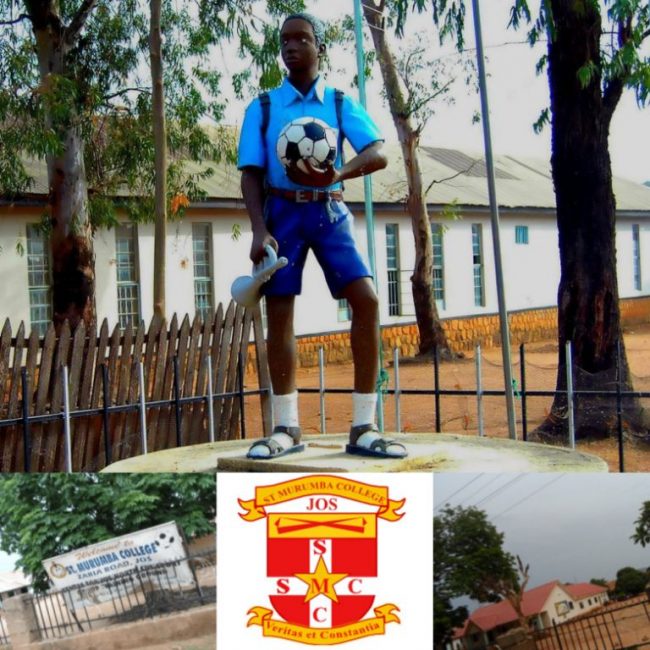

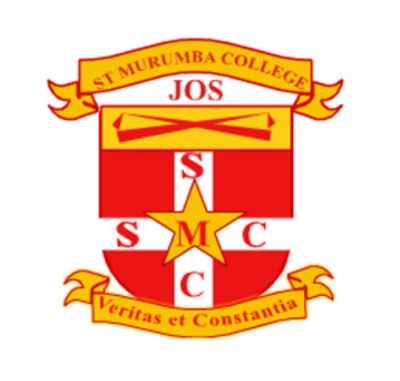
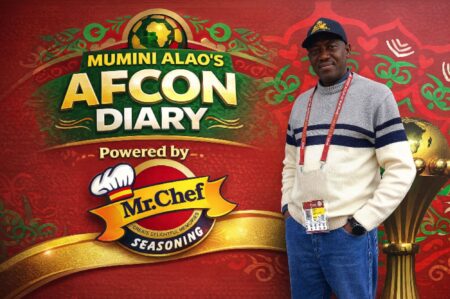
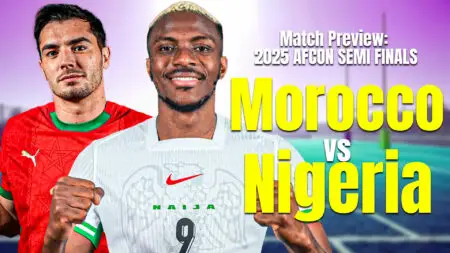
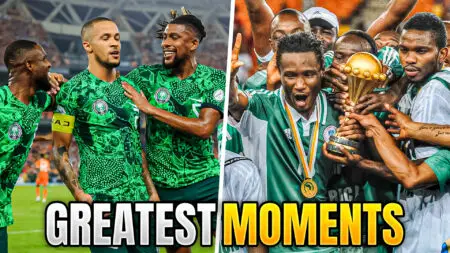

18 Comments
@Oakfield: your tirade and insults on Chief Segun Odegbami is unwarranted and completely uncalled for. Some of us enjoyed the post – whether it’s about his alma mater or not! It is not just a matter of public opinion alone – Segun ‘The Mathematical’ Odegbami ranks tall amongst ex-Nigerian athletes deserving of that LEGEND status.
I have never met Odegbami in person (I earnestly wish to someday) but all through my child hood years following our soccer national team – the name Segun Odegbami remained a constant even till date!
Only just a handful sports personalities have shown the kind of passion and love for the Super Eagles (nay sports in general) as this gentleman! He has continued to put his money where his mouth is! His globally recognized sports academy in Wasimi is a testament to the fact.
His being critical of the current coach of the Super Eagles is his opinion, and it’s his inalienable right! There are others who also think so – so if I may ask, why the insults??
He is a good and very patriotic Nigerian and a critical resource for sports development whose potentials for this purpose are yet to be tapped at all (one day we shall see it manifest!)
Let us keep the conversation clean and healthy please!!
Can u pls list his achievements for nigeria that should earn him that legendary status using caps,goals,awards won, top clubs played and meaningful contributions during his playing days as a yardstick whilst comparing him to real legends like okocha,kanu,mikel,christian chukwu, keshi, musa, amoo, etc. I think he doesn’t deserve a legendary status, he’s just over hyped. I will post his records here curled from Wikipedia (even though csn might bring it down just like they did to my initial post but I don’t care) and you people will see what I’m talking about. His list of achievements that should earn him the legendary status is just scanty.
Guess playing for so many clubs in europe is a yard stick to measure success in the eyes of oakfield. It is obvious u personal dislike mr odegbami. Is it a crime for him to express himself. Have known him from my youth days, and was glad to have met him in person, i tell you without bragging that he will transform nigerian sports in a heart beat, am not talking about football, but the entire sports in nigeria. This is someone with a vision. Please take time and reach out to him to back up my assertion of him
@ade, u didn’t Read my post well. If u did, u’ll discover that playing for top clubs was not the only criteria listed. Do yourself some good and compare his achievements as listed above to other peoples’, you’ll discover truly that he’s being over hyped.oh,i forgot to mention Yekini(God forgive me), these are people that deserve the legendary status not a columnist on csn.
What you failed to understand is during his era, nigerian league was top notch, we never had any foreign based player, not until Keshi stepped out of the country. Many of our players back then were not hungry to go out, and the african leagues were on top. So comparing different era’s is a bit harsh.
Dear Segun,
To the St Finbarrs list, please add Okon Offem. He was a track star, and a football player at St Finbarrs, he later played for the then Green Eagles.
Segun Odegbami (born 27 August 1952 in Abeokuta) is a retired Nigerian footballer who played as a forward.[1][2]
Segun Odegbami
Personal information
Full name
Patrick Olusegun Odegbami
Date of birth
27 August 1952 (age 67)
Place of birth
Lagos, Nigeria
Playing position
Forward
Senior career*
Years
Team
Apps
(Gls)
Ibadan Housing Corporation
–
(–)
1970–1984
Shooting Stars
–
(–)
National team
1976–1981
Nigeria
47
(22)
* Senior club appearances and goals counted for the domestic league only
Career Edit
Odegbami was brought up in the northern city of Jos, Plateau State.[3] He won 46 caps and scored 23 goals for the National Team, and guided Nigeria to its first Africa Cup of Nations title at the 1980 tournament in his homeland. Nicknamed Mathematical, he was famous for his skill on the ball, speed and precision of his crosses from the right wing. He played for IICC Shooting Stars of Ibadan his entire career, from 1970 to 1984. His last game was the 1984 African Champions Cup final defeat to Zamalek of Egypt. The original source of the nickname “Mathematical” was because Segun Odegbami attended and graduated from Nigeria’s premier technical institution; The Polytechnic, Ibadan where he studied Engineering.
His younger brother, Wole Odegbami, is also a former national team player. He is currently a columnist in Nigeria. In 2007 Chief Segun Odegbami appeared on Nigerian Who Wants To Be A Millionaire hosted by Frank Edoho. He played a game for charity with the much loved Zebrudaya and donated all his winnings to The Little Saints’ Orphanage on the Strong Tower Mission.
Career after football Edit
In September 2015, former Nigeria national football team captain Segun Odegbami stated his intention to run for FIFA presidency.[4]
The above was c/o Wikipedia. E don end as u see am so, so called over hyped “legend”. Now compare the above with the following BIOS of just a few people who truly deserve that legendary status *************†****
Jay-Jay Okocha
Read in another language
Watch
Edit
Augustine Azuka “Jay-Jay” Okocha (/əˈkɒtʃə/ ə-KOTCH-ə; born 14 August 1973) is a Nigerian former professional footballer who played as an attacking midfielder. A quick and skillful playmaker, who is considered as the best Nigerian and one of the best African players of all time,[2][3] Okocha was known for his confidence with the ball, technique, creativity, and dribbling skills, as well as his use of feints, in particular the stepover.[4] Due to his skill, he was described as being ‘so good that they named him twice’ (a line immortalised in a terrace chant while Okocha played for Bolton Wanderers).[5]
Jay-Jay Okocha
Okocha playing in a 2017 charity match
Personal information
Full name
Augustine Azuka Okocha[1]
Date of birth
14 August 1973 Eintrach[1]
Place of birth
Enugu, Enugu State, Nigeria
Height
1.73 m (5 ft 8 in)[1]
Playing position
Attacking midfielder
Youth career
Enugu Rangers
Senior career*
Years
Team
Apps
(Gls)
1990–1992
Borussia Neunkirchen
35
(7)
1992–1996
Eintracht Frankfurt
90
(16)
1996–1998
Fenerbahçe
62
(34)
1998–2002
Paris Saint-Germain
84
(12)
2002–2006
Bolton Wanderers
124
(14)
2006–2007
Qatar SC
41
(6)
2007–2008
Hull City
18
(0)
Total
454
(85)
National team
1993–2006
Nigeria
73
(14)
Honours
Men’s Football
Representing Nigeria
Olympic Games
1996 Atlanta Team Competition
* Senior club appearances and goals counted for the domestic league only
Club career Edit
Augustine Azuka “Jay-Jay” Okocha was born in Enugu, Enugu State.[1] His parents were from Iwo local Government, Osun State, Nigeria. The name Jay-Jay was passed down from his elder brother James, who started playing football first; his immediate elder brother, Emmanuel was also called Emma Jay-jay, but the name stuck with Okocha instead. He began playing football on the streets just like many other football stars, usually with a makeshift ball.
In an interview with BBC Sport he said, “As far as I can remember, we used to play with anything, with any round thing we could find, and whenever we managed to get hold of a ball, that was a bonus! I mean it was amazing!” In 1990, he joined Enugu Rangers. In his time at the club he produced many spectacular displays including one where he rounded off and scored a goal, against experienced Nigerian goalkeeper William Okpara in a match against BCC Lions. Later that year, he went on holiday to West Germany, the country that had just won the 1990 FIFA World Cup, so he could watch German league football. His friend Binebi Numa was playing in the Third Division for Borussia Neunkirchen, and one morning Okocha accompanied Numa to training, where he asked to join in. The Neunkirchen coach was impressed with Okocha’s skills and invited him back the next day before offering him a contract.[6] A year later, he joined 1. FC Saarbrücken, but stayed only a few months with the 2. Bundesliga side before a move to the 1. Bundesliga with Eintracht Frankfurt.
Eintracht Frankfurt Edit
Okocha joined Eintracht Frankfurt in December 1991, where he linked up with many well-known players including Ghanaian international striker Tony Yeboah and later Thomas Doll. He continued to shine for the German side, one highlight being a goal he scored against Karlsruher SC, dribbling in the penalty box and slotting the ball past goalkeeper Oliver Kahn even going past some players twice.[7] The goal was voted Goal of the Season by many football magazines, and also voted as 1993 Goal of the Year by viewers of Sportschau (an ARD German TV sports programme).[8] In 1995, Okocha, Yeboah and Maurizio Gaudino were all involved in a feud with manager Jupp Heynckes, which led to their departure from the club.
Yeboah and Gaudino later left for England, while Okocha stayed until the end of the season when Frankfurt were relegated to the 2. Bundesliga, before signing for the Istanbul club Fenerbahçe.
Fenerbahçe Edit
Okocha joined Turkish club Fenerbahçe for approximately £1 million following Eintrach
********†****************
Nwankwo Kanu
Read in another language
Watch
Edit
Nwankwo Kanu, OON (born 1 August 1976), is a Nigerian retired footballer who played as a forward. He was a member of the Nigerian national team. Kanu is a native of Abia State, southeast Nigeria,[3] and a member of the Aro sub-group of the Igbo ethnic group.[4] Nwankwo means “Child born on Nkwo market day” in the Igbo language.[5]
Nwankwo Kanu
Kanu in a friendly in 2017
Personal information
Full name
Nwankwo Kanu[1]
Date of birth
1 August 1976 (age 43)
Place of birth
Owerri, Imo, Nigeria
Height
1.97 m (6 ft 5 1⁄2 in)[2]
Playing position
Forward
Senior career*
Years
Team
Apps
(Gls)
1992–1993
Iwuanyanwu Nationale
25
(15)
1993–1996
Ajax
54
(25)
1996–1999
Inter Milan
12
(1)
1999–2004
Arsenal
119
(37)
2004–2006
West Bromwich Albion
58
(9)
2006–2012
Portsmouth
141
(20)
Total
404
(108)
National team
1993
Nigeria U17
6
(5)
1996
Nigeria U23
6
(3)
1994–2011
Nigeria
87
(12)
Honours
Men’s Football
Representing Nigeria
Olympic Games
1996 Atlanta Team Competition
Africa Cup of Nations
Runner-up 2000 Ghana-Nigeria
FIFA U-17 World Cup
Winner 1993 Japan
* Senior club appearances and goals counted for the domestic league only
Kanu played for Nigerian team Iwuanyanwu Nationale, Dutch side Ajax, Inter Milan of Italy, and English clubs Arsenal, West Bromwich Albion and Portsmouth.[6]
Kanu won a UEFA Champions League medal, a UEFA Cup medal, three FA Cup Winners Medals and two African Player of the Year awards amongst others. He is one of few players to have won the Premier League, FA Cup, Champions League, UEFA Cup and an Olympic Gold Medal.[7] He made the third-most substitute appearances in Premier League history, appearing from the bench 118 times,[8] and is regarded as one of the best players in African football history.[9]
He is also a UNICEF Goodwill Ambassador,[10] and African brand ambassador for digital TV operator StarTimes.[11] He is also the owner of Kanu Sports TV, an Internet Sports Television which position to be the first indigenous sports TV in Nigeria,[12] Kanu Sports Television[13]
Club career Edit
Early career Edit
Born in Owerri, Nigeria, Kanu began his career at Nigerian league club Federation Works, before moving to Iwuanyanwu Nationale. After a notable performance at the U-17 World Championships he was signed by Dutch Eredivisie AFC Ajax in 1993 for an undisclosed fee. He made his Ajax debut that year and went on to score 25 goals in 54 appearances. Kanu also came on as a sub in Ajax’s 1995 Champions League final win over AC Milan.
Inter Edit
In 1996, Ajax sold Kanu to Serie A side Inter Milan for around $4.7 million. That summer he captained the Nigerian team that won gold at the Olympics, and scored two late goals in the semi-finals against powerhouses Brazil to overturn a 2–3 scoreline into a 4–3 win in extra time. Kanu was also named African Footballer of the Year for that year.[14][15]
However, soon after returning from the Olympics, Kanu underwent a medical examination at Inter, which revealed a serious heart defect; he underwent surgery in November 1996 to replace an aortic valve and did not return to his club until April 1997. In interviews, Kanu frequently cites his faith as a Christian,[16] and has often mentioned this trying time of his career as an occasion when he prayed to God. Kanu’s experience also led to his founding the Kanu Heart Foundation, an organisation that helps predominantly young African children who suffer heart defects and whose work was expanded to provide aid for homeless children in 2008.[17]
Arsenal Edit
In February 1999, after just twelve games and one goal for Inter, Kanu was signed by Arsenal for approximately £4.15 million. He made his debut for Arsenal, against Sheffield United in the FA Cup. With the score 1–1 and ten minutes to go, the Sheffield United goalkeeper Alan Kelly kicked the ball out of touch so that treatment could be given to Lee Morris. When the ball was thrown back into play by Ray Parlour, although it was
*******************
Samson Siasia
Read in another language
Watch
Edit
Samson Siasia (born 14 August 1967) is a Nigerian former football striker and the former head coach of the Nigerian Men’s National football team (also known by their nickname The Super Eagles) from 2010 to October 2011.[1] He was reappointed in 2016.
Samson Siasia
Personal information
Date of birth
14 August 1967 (age 52)
Place of birth
Lagos, Nigeria
Height
1.80 m (5 ft 11 in)
Playing position
Striker
Senior career*
Years
Team
Apps
(Gls)
1982–1984
Julius Berger
1985–1986
Flash Flamingoes
1987
El-Kanemi Warriors
1987–1993
Lokeren
151
(31)
1993–1995
Nantes
40
(4)
1995–1996
Tirsense
15
(0)
1996–1997
Al-Hilal
1997–1998
Perth Glory
22
(3)
1998–2000
Zafririm Holon
30
(12)
National team
1984–1999
Nigeria
51
(16)
Teams managed
2005–2007
Nigeria U-20
2007–2010
Nigeria U-23
2010–2011
Nigeria
2012–
Durgapur FC
2016
Nigeria
2016
Nigeria U-23
* Senior club appearances and goals counted for the domestic league only
On 16 August 2019, international governing body of football, FIFA banned Siasia from the game for life, following a match-fixing investigation. The adjudicatory chamber of FIFA’s independent Ethics Committee stated that the former Nigerian coach pleaded guilty of having accepted “bribes in relation to the manipulation of matches in violation of the FIFA Code of Ethics”.[2]
Playing career Edit
Club career Edit
At club level, Siasia most notably played for French team FC Nantes where he became league champion in 1994/95. He also played for Australian club Perth Glory with fellow Nigerian Peter Anosike, as well as in Belgium, Portugal, Saudi Arabia and Israel.
International career Edit
He played 51 international matches for Nigeria, in which he scored thirteen goals, and was part of the team that participated in the 1994 FIFA World Cup[3] and won the 1994 African Nations Cup. He was also a member of the Nigerian team that won bronze at 1992 African Nations Cup in Senegal. He participated in the National Team over a period of 11 years and was recognized in Nigeria as the third leading scorer for the National Team.
Honours Edit
In November 2009, the main field at the Yenagoa Township Stadium was named in his honor.[4]
Coaching career Edit
In 2005, Samson Siasia coached the under 20 team (Flying Eagles), taking them to the finals of both the 2005 Under-20 World Cup and the U-20 African Youth Championship. He won the African Youth Championship and advanced all the way to the world final – before losing to Argentina 2–1. He also assisted Augustine Eguavoen in coaching the national team.
Samson Siasia was appointed national U-23 coach in January 2007. In 2008, he coached the Nigerian Under-23 Olympic squad to the final against Argentina. In a superbly played series of matches, Nigeria’s team earned the Olympic Silver Medals. Earlier in 2008, the U-23 team won the inaugural Intercontinental Cup in Malaysia. This fine team was composed entirely of domestic Nigerian players and won the Cup against many teams headed for the 2008 Summer Olympic Games. In addition to his position as head coach of the Under 23 Olympic Eagles, he developed a youth academy in the capital city Abuja, called SiaOne Soccer Academy. On 17 March 2009, he was reappointed as the head coach of the under-20 team after the finished a disappointing 3rd in the 2009 African Youth Championship. He received a six-month contract to coach Heartland F.C. in July 2010.[5] On 4 November 2010, he was named as the national team coach to succeed Swedish Lars Lagerbäck. He was fired on 28 October 2011 for failing to take the Nigeria team to the 2012 African Nations Cup[6] in Gabon & Equatorial Guinea.
Siasia was one of the five foreign managers auctioned in February 2012 for the new Bengal Premier League Soccer. His former national teammate, Jay-Jay Okocha, was bought by the same club from the five icon players up for auction. On 26 February 2016, he was named by the Nigeria Football Federation (NFF) as the Chief Coach of the
*************************
Victor Ikpeba
Read in another language
Watch
Edit
Victor Ikpeba Nosa (born 12 June 1973) is a Nigerian former footballer who played as a forward for both club and country. Ikpeba played thirty-one international matches and scored seven goals for Nigeria. He played at the FIFA World Cups in 1994 and 1998. Ikpeba helped win the 1994 African Nations Cup and the Olympic football gold medal in 1996.
Victor Ikpeba
Personal information
Full name
Victor Ikpeba Nosa
Date of birth
12 June 1973 (age 46)
Place of birth
Benin City, Nigeria
Height
1.74 m (5 ft 8 1⁄2 in)
Playing position
Forward
Senior career*
Years
Team
Apps
(Gls)
1989
ACB Lagos
1989–1993
RFC Liège
79
(27)
1993–1999
Monaco
170
(55)
1999–2002
Borussia Dortmund
30
(3)
2001–2002
→ Real Betis (loan)
3
(0)
2002–2003
Al Ittihad
26
(13)
2004
Charleroi
15
(5)
2005
Al-Sadd
National team
1996
Nigeria U23
6
(1)
1992–2002
Nigeria
31
(7)
Honours
Representing Nigeria
Men’s Football
1996 Atlanta Team Competition
* Senior club appearances and goals counted for the domestic league only
Career Edit
Ikpeba was discovered by Belgian club RFC Liège during the 1989 FIFA U-17 World Championship, and moved to play in Belgium together with teammate Sunday Oliseh. At the age of 20 and after scoring 17 goals in 1992–93, Ikpeba was bought by Monégasque side AS Monaco, then coached by Arsène Wenger. At Monaco, he gradually became a success, albeit with a tough start. He showed outstanding form subsequent to the 1996 Olympics, scoring 13 league goals to help Monaco win the league title, and also finishing as the second-top goalscorer in the 1996–97 UEFA Cup. His performances earned him the African Footballer of the Year award in 1997. Two successful seasons followed. While at Monaco, Ikpeba nearly signed for Italian club Reggina, but his wife, unwilling to give up life in France, locked him in their house on the day he was to sign his contract.[1] Ikpeba played in Jean Tigana’s talented Monaco side which famously put Manchester United out of the Champions League in 1998 on away goals after a 1–1 draw at Old Trafford.[2]
Ikpeba again teamed up with Sunday Oliseh at Borussia Dortmund in 1999, for a transfer fee of £4.8m. Ikpeba scored only two goals in his first season in the Bundesliga and barely played in his second, after falling out with the coach Matthias Sammer. Looking for a move abroad, Ikpeba turned down Southampton to join Real Betis on a season-long loan.[3] Things went further downhill for the player in Spain as he was criticised for being overweight by the coach, after making just one appearance for the club. He didn’t feature for Betis again up until the last two games of the season.
Ikpeba then signed a season-long contract with Libyan outfit Al-Ittihad, but only played out half of his contract with the club, as he quit the team over financial disagreements.[4] After leaving Libya and spending almost a year without a club, Ikpeba returned to Belgium, where he joined his former Liège coach at Charleroi. After helping the club avoid relegation, Ikpeba came very close to signing with German side SC Freiburg,[5] but the deal fell through when it was revealed that the player had no EU passport.[6] Ikpeba then had a short spell at Al-Sadd in Qatar, before retiring from professional football.
Style of play Edit
In spite of his small physique, Ikpeba was a fast, versatile, and opportunistic forward, who was capable of playing as a striker, as a second striker, or on either wing, and was known for his ability to score from any position on the pitch.[7]
Personal life
Honours Edit
Club Edit
RFC Liège
Belgian Cup: 1989–90
Monaco
Ligue 1: 1996–97
Trophée des Champions: 1997
Al-Ittihad
Libyan Premier League: 2002–03
International Edit
Nigeria
African Cup of Nations: 1994
Olympic Gold Medal: 1996
Individual Edit
Ebony Shoe Award: 1993
African Footballer of the Year: 1997
References
Over hyped cricket legend… Csn, if una like take Dow the above but the truth still remains what it is…
Just look at all the wahala you went through just to discredit one man for writing his column and airing his opinion.
Please go and enjoy your weekend and forget this bitterness. Haba!
U see how it hurts, Same way he falsely discredited Mr rohr is the same way I will “factfully’ expose him. He doesn’t deserve the status accorded him, period. He can’t even be compared to the least of players that have played for the national team. Make him no find club and start coaching to build his status, no be to dy write mulumba and columbus upandand for can.
You’re such a stupid person. A man wrote about his alma mata and all you could do is go to Wikipedia to download other great footballers Nigeria produced. You are vain and idiotic. Your effort is meaningless and useless. In his generation Odegbami was great. Many of them didn’t go out to play for clubs outside Nigeria because of league was good and the value of naira to dollars was almost equal. National stadium is always filled to the brim for challenge club matches. No European league or premiership on our TV. People were supporters of Stores, Rangers, mighty jet , IICC, Nepa, water corporation of Ibadan , Leventis United, Ranchers Bees etc.
Get over it Oakfield.
It is a shame that you are taking it so personal that Mr. Odegbami criticised Coach Rohr. Since then, you never want to hear anything about him.
For goodness sake why are you so bitter????
I celebrate you Mr Odegbami. I may not agree with every opinion you share, but you remain a legend of our dear nation!
I agree with you absolutely @Bomboy. No point joining issues with @Oakfield on this matter! It’s clear what it is…
Let’s all have a pleasant weekend!
It is obvious that you were not born when Segun Odegbami played for IICC of Ibadan and the Green Eagles. Those of us who watched him play for both club and country will always frown at people like you who believes players of your era are heros and all others that came before you were born should be thrown into the dustbin history. When he played the Nigerian economy was stronger than most European and Asian countries economy , the Dollar was $2 to the Naira, our stadiums used to Be full to the brim every Saturday, if you don’t get to the stadium on time you will be turned back. I used o get to ogbe stadium in Benin City at about 9am whenever IICC or Rangers came to play Bendel Insurance. IICC was the first Nigerian club to win any Continental trophy, and Odegbami was a member of the Super Eagles that won the first Nation’s cup. HE IS A LEGEND, today otherwise is not just an insult to Mr Odegbami but to the whole country. He is one of the few Nigerians that has a National honor for his achievement in the field of play. Besides, he has gone on to contribute more to the development of sports since his retirement as a player. Maybe you don’t know how he helped Chioma Ajunwa o win the 1st ever 8ndividuàl gold medal at the ¹996 Olympics, and now he has a school for sports , please let us learn to celebrate our own, that he did not play abroad does not mean he was of a lesser quality as a player, if you had watched him dance his way through tight defences you would not have been writing trash about him. Chief Segun Mathematical Odegbami you are a Hero and a Legend.
With all this u just said, getting to a full stadium, being turned back, Nigerian economy being the strongest in Africa, bla bla bla, what did Nigeria achieve during that period apart from winning the nations cup for the first time in 1980??? And what were his contributions? Don’t say I wasn’t born then bcos u don’t know my age.
Cafonline.com is a disgrace because no functional updates which indicates the present administration under the current car president Ahmadu Ahmadu is incompetent and lack innovative ideas. Imagine I expect the matches and ever going in u-23 Afcon championship in Egypt to post on the website. Rather, it was the past Afcon senior nation cup news that was yet left there. Without current updates. Which is too bad. When will African wake up by allowing blind and deaf, but cunning character to lead us in affairs that matter. They should be sack and allow your vibrant African to lead pls
You are right big brother. Good observation. The essence of the CAF official website is to update fans on African sport event. Rather, yet nothing different has the present caf president introduce sin e he assumed office. Despite his criticism against his predecessor. Mr issa hayatou.
African why all this mess I this present modern age. Your children must ask you shocking questions I the nearest future. Check FIFA.com. you will get latest football update at regular basis. Meaning, they are working with vision for growth. But ours cafonline.com is dead and buried. Why. It’s a shame.